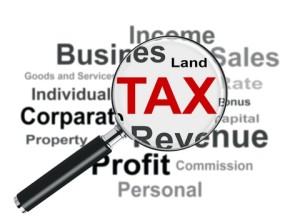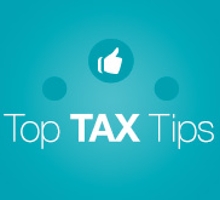Pension Fees Cap Delayed Until 2015
 Pensions minister Steve Webb has confirmed his proposed pensions fee cap, due to come into force from April, will by delayed by at least a year, stating it would “only right and fair to give employers a minimum of 12 months' notice of the changes”.
Pensions minister Steve Webb has confirmed his proposed pensions fee cap, due to come into force from April, will by delayed by at least a year, stating it would “only right and fair to give employers a minimum of 12 months' notice of the changes”.
Under the proposed cap, legislation which Mr Webb is pushing forward under a previous promise of a "full frontal assault" on excessive pension fees, no pension operator could charge more than between 0.75% and 1% annually towards anybody who has been automatically enrolled into a pension scheme. Under current rules, certain (primarily older) schemes are charging up to 2.3% annually in management charges.
Read more
What is Fixed Protection?
 Changes to current pensions legislation, due to come into force from 6 April 2014, are set to see a reduction in the current Standard Lifetime Allowance from £1.5 million to £1.25 million. You can protect and fix your Lifetime Allowance at £1.5 million effective immediately through Fixed Protection 2014.
Changes to current pensions legislation, due to come into force from 6 April 2014, are set to see a reduction in the current Standard Lifetime Allowance from £1.5 million to £1.25 million. You can protect and fix your Lifetime Allowance at £1.5 million effective immediately through Fixed Protection 2014.
This change should be acted upon immediately if you’ve already amassed pension savings of over £1.25 million (or indeed, you expect your savings to eventually sail past this figure due to growth and interest), and you are planning on adding to any pension schemes, whether through those you’re currently involved with or through a new scheme.
Read more
Minimum Wage Fines Quadruple for Employers
 Employers who choose not to pay their workers the National Minimum Wage (NMW) will soon see fines quadruple, with a penalty being put into place of £20,000 per-employee underpaid, plus an added financial penalty of 100% of the unpaid wages owed to workers.
Employers who choose not to pay their workers the National Minimum Wage (NMW) will soon see fines quadruple, with a penalty being put into place of £20,000 per-employee underpaid, plus an added financial penalty of 100% of the unpaid wages owed to workers.
Under previous rules, such employers caught breaking NMW law were required to pay the unpaid wages, plus just 50% of the total underpayment for every worker who has been underpaid. The maximum penalty was also four times smaller, sitting at just £5,000.
Read more
Increase in Upfront Payments for Tax Avoiders
 The government has in recent weeks announced plans to demand any tax owed upfront by users of tax avoidance schemes ahead of HMRC taking the necessary steps to investigate, and ultimately; challenge, the tax owed in the courts.
The government has in recent weeks announced plans to demand any tax owed upfront by users of tax avoidance schemes ahead of HMRC taking the necessary steps to investigate, and ultimately; challenge, the tax owed in the courts.
This hasn’t come as a shock to observers, with Chancellor of the Exchequer George Osborne touching upon these plans moving forwards as part of his Autumn Statement in December of last year (2013).
Read more
HMRC Tax Enquiries | Section 9A Notices
 In line with the law, HMRC are entitled to investigate personal tax returns under Section 9A of the tax management act, with notice being issued within twelve months of the return under investigation being filed.
In line with the law, HMRC are entitled to investigate personal tax returns under Section 9A of the tax management act, with notice being issued within twelve months of the return under investigation being filed.
Your written notice of the investigation into your tax return will quote Section 9A, with HMRC themselves indicating that they would either like to undertake a relatively routine enquiry, or that they would like to investigate very specific points regarding your return.
Read more
How to Claim Expenses if You Work from Home
 You’re not alone. Knowing what expenses you can and can’t claim back when working from home can be a headache for many of us, with the complexity of the issue often causing us to not claim back all the reliefs we’re entitled to.
You’re not alone. Knowing what expenses you can and can’t claim back when working from home can be a headache for many of us, with the complexity of the issue often causing us to not claim back all the reliefs we’re entitled to.
To help shed some light on this complex issue we’ve detailed below six areas that are often at the top of mind when trying to decide upon what expenses can and can’t be claimed back. To ensure you don’t miss out on the tax reliefs you’re entitled to, keep reading.
Read more
Tax Tips and News for February 2014
This issue … CGT on Home Developments, Non-Resident Landlords, VAT penalties, IHT Relief on Business Assets, February Question and Answer Section, February Key Tax Dates
[gdlr_accordion style="style-1" initial="1"]
[gdlr_tab title="CGT on Home Developments"]
Your main home is exempt from capital gains tax when you sell it, but only if you bought the property with the intention of living in it on a permanent basis, not as a project to renovate and sell. People who are required to live in job-related accommodation, such as prison warders and church ministers, can have a separate tax-exempt home without having to live in it.
Some taxpayers who have taken on renovation projects have found the gain on their property doesn't qualify for the tax exemption, because they can't prove they occupied the property on a permanent basis while it was being renovated before the sale.
For example, Jason Moore bought a property with his girlfriend in December 1999. He claimed to have lived there while he renovated it in the period to late February 2000, when he returned to live with his girlfriend. The property was then let to tenants until it was sold for a profit in June 2004. Jason had no documentary evidence of his time at the property in the three months to February 2000, so his claim for the tax exemption failed.
Paul Gibson went much further in knocking down his whole home and constructing a new one on the same site, which he sold shortly after it was completed. Although Paul intended to live in the new property, he was forced to sell it to repay the loans he had taken out. He claimed to have occupied the finished house for about five months before the sale, but he couldn't prove this with any documents.
If you are planning a "grand design" conversion for your own home talk to us first about the tax implications.
[/gdlr_tab]
[gdlr_tab title="Non-Resident Landlords"]
If you leave the UK and let your property here, your letting agent (or the tenant where there is no agent) should deduct basic rate (20%) tax from the rents paid after deduction of certain expenses, under the non-resident landlord scheme (NRL). This ensures that at least some tax is paid on the income in the UK.
You can avoid having 20% tax deducted if you successfully apply for approval under the NRL scheme from HMRC. Approval will be granted where your UK tax affairs are up to date, or you don't expect to be liable to pay UK tax in the year you apply.
The NRL scheme applies if the landlord's usual place of abode is not in the UK. This is not the same as being not resident in the UK for tax purposes. An absence from the UK for as little as six months can be enough to establish your usual place of abode as being outside the UK.
The NRL scheme applies to members of the armed forces and diplomats, just as it does to any other non-resident landlord. It also applies to overseas trusts and companies, which must have income tax (not corporation tax) deducted from their rental income.
If your UK property is let as holiday accommodation, you may need to register for VAT in the UK as holiday lets are subject to standard rate VAT. As an overseas person you have a zero turnover threshold for VAT registration, so you may have to register for VAT immediately on letting holiday accommodation. However, where a UK letting agent manages the property on your behalf, the VAT registration threshold of £79,000 applies for that landlord.
[/gdlr_tab]
[gdlr_tab title="VAT Penalties"]
If you pay your VAT late to HMRC, even one day late, your card will be marked for a VAT penalty called a "default surcharge". The first late payment doesn't attract a monetary penalty, but the second occasion on which you are late within 12 months triggers a penalty of 2% of the VAT due. The third, fourth, and fifth occasions of lateness increase the percentage of the penalty to 5%, 10% then 15% of the VAT due (ouch!).
You may not notice the first two penalties set at 2% and 5% of the VAT due as HMRC will only demand payment from a small business if the total penalty amounts to over £400. However, you will receive a warning letter, and you should appeal against the penalty if you had a reasonable excuse for paying late.
Not having the money available to pay your VAT bill is not a reasonable excuse. If your business has a cash flow problem you need to ask the HMRC business support service for time to pay before the VAT becomes payable, or we can do this on your behalf. The number to ring is: 0300 200 3835, and it's open every day. Don't ring the VAT helpline as they can't deal with VAT debt issues.
If your VAT payment was delayed by circumstances outside your control, for example a computer failure at your bank, that would be a reasonable excuse. However, you do need to present evidence of this reason when asking HMRC to review the penalty. Around 60% of VAT penalties are overturned on review, so it's worth a try!
[/gdlr_tab]
[gdlr_tab title="IHT Relief on Business Assets"]
Inheritance tax (IHT) is payable at 40% on the net value of the assets you own when you die, plus (to a certain extent) on the value of the gifts you made in the seven years before you die. The first £325,000 of assets is currently exempt from IHT in all cases.
There are also exemptions from IHT for business assets, such as shares held in unquoted companies. However, you cannot escape IHT by holding all your investments and spare cash inside your personal company. The business of the company must be more than passive holding of investments, and the Taxman normally regards letting property as an investment, but this is a grey area.
Even where your company has an active trade, it doesn't follow that the full value of its shares will qualify for the IHT exemption. The Taxman wants to look inside the company and check that each asset it holds, including cash, is used for the purpose of the trading business.
This can cause difficulties for companies which hold more cash than is needed for everyday working capital. If your company is in this position, to get the IHT exemption you need to form some plans for use of the funds within the business and document those plans.
The IHT exemption applies where the shares of the trading company are held by individuals, or where a holding company holds the shares, and shares in that holding company are held by individuals. However, where the holding vehicle is a general partnership or an LLP, instead of a company, the IHT exemption does not apply.
[/gdlr_tab]
[gdlr_tab title="February Question and Answer Section"]
Q. I work through my own personal service company. When I go abroad on business my customer normally pays for the cost of hotels and meals. Can I still claim the personal incidental expenses (PIE) from my own company?
A. Yes you can still claim the PIE, which is £10 per night for overseas trips, when you are abroad on business. The PIE is supposed to cover incidental expenses such as phone calls, newspapers and laundry, not the cost of hotel or meals.
Q. My investment property was let as furnished holiday accommodation until 31 August 2013. As I was not getting enough income as holiday lets I have let it on rolling six month tenancies from September onwards. How do I report the income? Should I split the year at 31 August, with the first five months treated as holiday lettings and the remaining period as normal property let?
A. For the property to qualify for the special tax reliefs due for furnished holiday lettings (FHL), it must qualify as FHL for the full 12 months. One of the conditions is that it must be available for holiday lettings for 210 days in the year. Your property was only available for holiday letting for 149 days, so it does not qualify for FHL for 2013/14. You should treat all of the income from the property as ordinary let property income in 2013/14. Assuming the property qualified as FHL in 2012/13, your FHL business is treated as ceasing on 5 April 2013. You may need to calculate closing balances for capital allowances at April 2013. We can help you with that.
Q. I've heard that I won't be able to reclaim the sick pay I pay to my employees from April. Is this true?
A. Unfortunately yes. Employers can currently recover statutory sick pay (SSP) as an off-set against PAYE due, if the SSP exceeds 13% of the class 1 NICs the employer pays over for the tax month. The excess SSP above the 13% threshold is the off-set amount.
For SSP paid on and after 6 April 2014 no off-sets will be given. The SSP will be an absolute cost to the employer,although it is a legal requirement to pay SSP to eligible employees. In return the Government is going to provide more help to employees who have been off sick for 4 weeks or more, in the form of a "back to work plan".
[/gdlr_tab]
[gdlr_tab title="February Key Tax Dates"]
2 - Last day for car change notifications in the quarter to 5 January - Use P46 Car
19/22 - PAYE/NIC and CIS deductions due for month to 5/2/2014
28 - Talk to us about year end and pre-budget planning
First 5% penalty surcharge on any 2012/13 outstanding tax due on 31 January 2014 still unpaid
To speak with a professional to discuss how any of the above affects your personal or business finances, contact us today on 020 8780 2349 or get in touch with us via our contact page to arrange a complimentary, no-obligation meeting.
[/gdlr_tab]
[/gdlr_accordion]
This blog is a general summary. It should not replace professional advice tailored to your specific circumstance.







